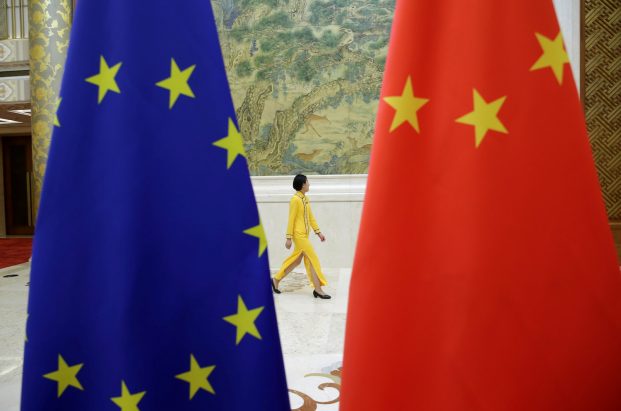European businesses are concerned about the “lack of clarity” in China’s new data and anti-espionage laws, European Commission Vice President Vera Jourova said on Tuesday.
Businesses dealing with China also want help to reduce the “long processes” that companies have to undergo to manage procedural matters, Jourova said.
Sections in China’s anti-espionage law, which was expanded in July, ban the transfer of any information related to national security and interests, without defining those terms.
ALSO SEE: EU Leaders Fear Dependency on Chinese Batteries, Fuel Cells
High-level dialogue held on Monday
Chinese President Xi Jinping’s increasing focus on national security – particularly a crackdown on consultancies and due diligence firms – has left many foreign firms unsure of where they might step over the line of the law.
Beijing also widened the definition of spying to include cyberattacks against state organs or critical infrastructure.
Jourova said the lack of definitions on, for example, what constitutes important data, and the lack of clarity on how the law might be contravened was problematic, as was the lengthy time it takes to complete procedural matters.
“I think it’s 45 days for one process,” Jourova a news conference. “It lasts very often a much longer time.”
She was speaking after co-chairing the first EU-China High-level Digital Dialogue in three years on Monday.
‘Information link’ may be needed’
“We will come back to the Chinese authorities with a proposal to create some kind of information link that will help EU businesses to understand the law and avoid possible lack of compliance,” she added.
China is a partner, competitor and systemic rival but systemic rivalry has become the most prominent of the three roles the country plays in the digital area, she said.
It is important China and Europe keep communication channels open in various degrees where there is disagreement, she said.
“Today, we had a frank discussion with China on crucial aspects of our digital policies and technology. We want to cooperate where we can make substantial progress,” Jourova said later.
“We also took an important step forward on consumer protection. And we need to engage in areas where we disagree. We cannot resolve our concerns and different views in one day but we will maintain the dialogue on digital matters, which are so fundamental for both our economies and societies.”
In late July, the Chinese commerce ministry briefed representatives from the US, European, Japanese and South Korean chambers of commerce, as well as 30 foreign firms, on the new anti-espionage law.
China is committed to creating a fair, transparent and predictable business environment, the ministry said at the time.
- Reuters with additional reporting and editing by Jim Pollard
ALSO SEE:
China Calls on People to be Nation of Spies For the Party
China’s New Anti-Espionage Law Puts Firms at Risk, US Warns
China’s Security Focus Undermining Its Economic Goals
Micron Probe Fuels Fears of US Businesses in China
China Raids Office of US Due Diligence Firm, Detains Staff
























